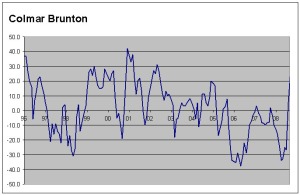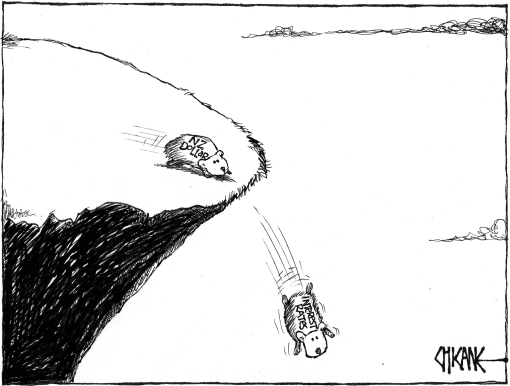How much poorer is New Zealand than Australia?
Over at Anti-dismal, Paul Walker links to a paper by NZIER on New Zealand incomes relative to Australia.
In the paper, NZIER states that:
the average living standards of New Zealanders in 2007 were 24% lower than those of Australians (or equivalently, relative to living standards in New Zealand, Australia’s were
32% higher)
However, I am not convinced – not yet anyway. Here’s why:


